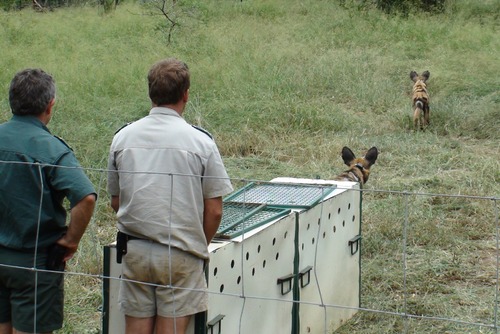This project provides the perfect opportunity for volunteers to assist in the vital conservation efforts of a number of endangered species, taking the chance to observe some of South Africa's unmatched diversity of wildlife. Home to the iconic 'Big Five;, Zululand is renowned as one of the most biodiverse wildlands in all of Africa - what more reason do you need to pay a visit?
As a volunteer, you will work closely with wildlife monitors at some of the country's top reserves, where you will track and observe all manner of endangered species. You will operate as part of a small team, usually with a maximum of 5 volunteers to each reserve, in order to enjoy an intimate and unique conservation experience. It is the only wildlife volunteer programme in Africa which is supported by and works with high profile conservation organisations including WWF, Wildlands Conservation Trust and Endangered Wildlife Trust.
Getting There
We recommend arriving into Richards Bay the night before your project begins, spending a night in a B&B near the airport and then return to the airport the next day for a 12pm meeting and transfer with the project coordinator. If you are unable to travel to Richards Bay a day early, we request that you arrive on an early flight (landing no later than 11am) as to allow you time to collect your luggage before being met by the project coordinator.
Itinerary
Day 1
If you have arrived into Richards Bay the day before the project starts, you will make your way back to the airport for a 12pm pickup and transfer to the project site. Once settled in, you will then spend the afternoon taking a tour of the site - keeping your eyes peeled for the Big Five, of course! - and meeting your fellow volunteers.
Day 2-14
Leave camp at sunrise (seated on the back of the open 4x4 tracking vehicle) to locate the endangered species that the radio telemetry equipment records from the collars which are fitted onto the priority species animals. Once observed, you will record the data from these animals. You will then return to camp to relax and have lunch. You will then head out again on the vehicle between 2-3pm to follow up on those animals that were not located in the morning. Arrive back at camp shortly after sunset, prepare supper and sit around the fire listening to the sounds of the bush (including hyenas)! At least one day a week is set aside for administrative work (data capture and analysis). This information is supplied to the local conservation authority, Ezemvelo KZN Wildlife, as well as well-known organisations including the WWF, the Black Rhino Range Expansion Project, Wildlands Conservation Trust, the Endangered Wildlife Trust (EWT) and the KZN Wild Dog Management Group.
Day 15
Sadly, today is your last day and you will transfer back to airport for your return flight home or will commence your onward independent travel plans. For those who have booked for a longer duration, you will rotate to another reserve for the next two weeks' work.
Project Activities
On this project, you will get the chance to take part in a wide variety of exciting activities. Below are examples of some of those included in this project.
Wildlife Monitoring
Volunteers work side by side with professional wildlife monitors, assisting them with all monitoring activities. As one of only five team members, each volunteer is part of an agile and efficient team.
Data Collection
As well as monitoring the animals on the reserve, you will be taught how to map their locations with GPS equipment. You will also record information on their composition and feeding patterns, retaining this information for research purposes.
Wildlife Photography
Volunteers are also asked to photograph the animals and, where necessary, create identikits for reintroduced/relocated animals. Additionally, camera traps must be set up at watering holes and game trails to help with data collecting and observing animals in specific areas.
Additional Activities
Depending on how long a volunteer works at the project, and the time of year, the following activities may also be a part of your volunteer programme: radio collaring of animals, notching (identity marking) of animals such as rhino, and the relocation or re-introduction of endangered species. Please note that these activities are not a given and that any involvement is dependant on necessity,



